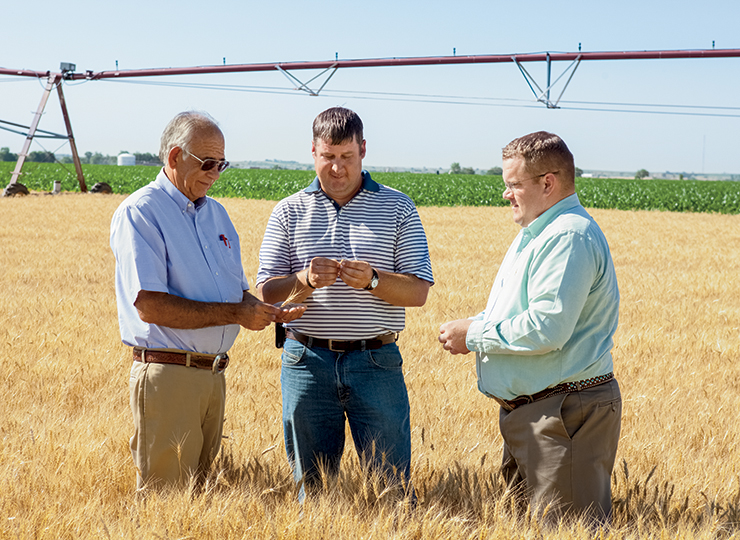Home > Nebraska > Nebraska Ag Education > Nebraska College of Technical Ag Gives Rural View of Education
Nebraska College of Technical Ag Gives Rural View of Education

At one point in time, you could find many two-year community colleges that focused entirely on agriculture spread across the nation. Now, there are only two – one in Ohio, the other the Nebraska College of Technical Agriculture (NCTA) in Curtis.
The institution, part of the University of Nebraska system, has withstood the test of time and a series of name changes throughout its 100-year existence. What hasn’t changed, however, is the school’s commitment to educate farmers, ranchers, and men and women in agribusiness. Enrollment in fall 2012 was 331, with 74 percent from Nebraska and 26 percent from 11 other states.
But don’t let the “Agriculture” in the NCTA name fool you. While NCTA faculty members still have a focus on farmers and ranchers, the college also has broadened its view to prepare students for other opportunities for a successful life in rural communities.
“Many students who attend NCTA have a rural background or an interest in agriculture,” says Dr. Douglas Smith, agriculture production systems division chair. “Some students do wish to own their own operation, so we have incorporated entrepreneurship or business-minded principles across our curriculum. When students leave NCTA, they are ready to enter the industry as managers and stewards of land and livestock. Many become partners in operations and future owners.”
Douglas says as agricultural production techniques have changed, the complexion of rural America has too, but there are still business opportunities in rural communities either related to agriculture or serving those who work in agriculture.
Weldon Sleight, who retired in late 2012 as dean of NCTA, says the school has created several specialty programs to encourage entrepreneurship and ownership in farming, ranching and rural business. This includes the 100 Acre Farm Advantage, 100 Beef Cow Advantage, Agronomy Scholars, and Business Builders. The hope is that these specialty programs will help encourage young people to see the value of returning to rural communities, establish agriculture and main street business enterprises and become rural community leaders, Sleight says.
“We just have to get these young people back there to have children of their own and be the next generation of farmers, ranchers, business people and community leaders.”
Sleight also noted the college is renovating facilities as it grows and changes, completing an extensive, $15 million building program in 2011 that included a new Education Center, Veterinary Technology Teaching Complex, Aggie West and Aggie Central residence halls, and a biomass campus heating system.



